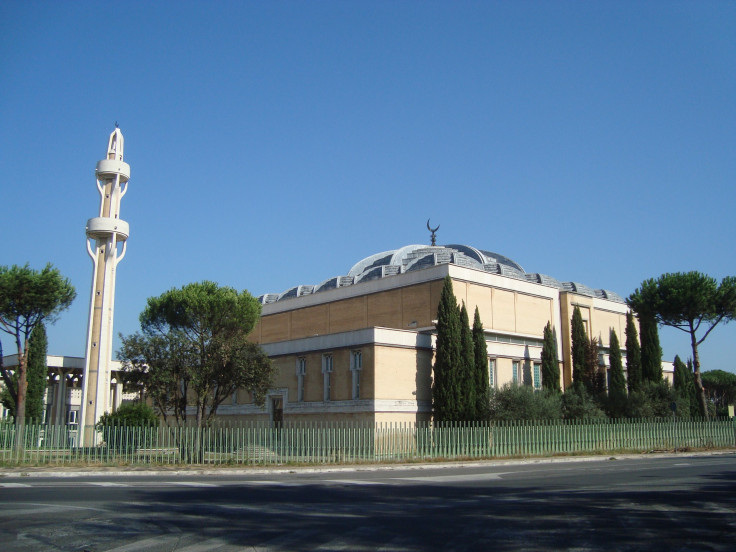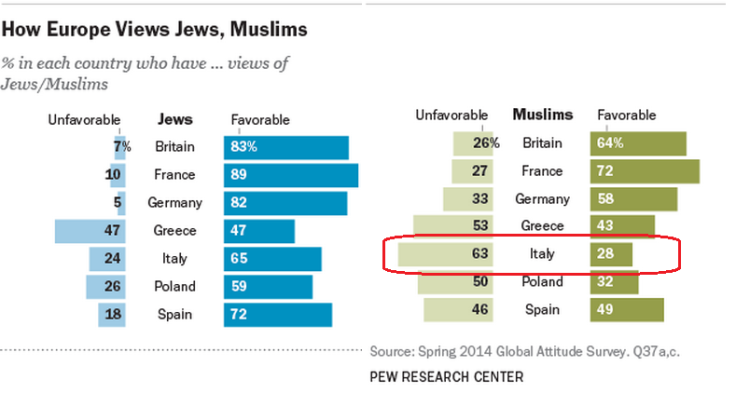'Anti-Mosque Law': Italian PM Renzi Trying To Stop Discriminatory Building Code; Italy Doesn’t Recognize Islam

Italy moved Friday to block new building regulations in one of its provinces that would make it much harder for Muslims to build mosques there. The regulations, passed by a right-wing-led local council in January, are possible because Islam is the only major faith that is not an established religion in Italy.
Prime Minister Matteo Renzi's centrist-left government said Friday it would refer the new rules passed in Lombardy, a northern Italian province bordering Switzerland, to the Constitutional Court for review. The decision elicited a harsh response from Matteo Salvini, an outspoken, up-and-coming anti-Islam politician who heads the right-wing Northern League, according to Agence France-Presse. "Renzi and [Interior Minister Angelino] Alfano -- here are the new imams," Salvini wrote on his Facebook page. Imams are mosque worship leaders.
Salvini’s party, which often pillories immigrants and the eurozone as being responsible for Italy's economic problems, controls a majority stake in the ruling political coalition in Lombardy, a region of 10 million people. The controversial rules apply to the posh fashion capital of the province, Milan, the country’s second-largest city, which has a sizable Muslim population.
The regulations that went into effect in January say that any group that wants to build a house of worship of a faith not recognized by the state, “would be subject to an extensive list of special restrictions," ranging from the size of associated parking facilities, to the outward appearance of the buildings, according to Al Jazeera.

The primary religion in Italy is Roman Catholicism, and about 80 percent of the population identifies as Roman Catholic or as a member of another Christian faith, according to the CIA World Factbook. But the country also has significant religious minorities of Jews, Sikhs and Muslims and about 1 in 5 are agnostic or atheist. About 1 million Italians identify as Muslim.
Italy abolished Catholicism as the official state religion in February 1984 when it signed a concordat with Vatican City, which also ended the practice of compulsory religious education for Italian schoolchildren that required official exemption requests. Since then Italy has officially welcomed other faiths, but Islam is still outside the big tent, which has caused assimilation tensions as Muslims see taxpayer funds go to local leaders of other faiths.
Since the early 1980s, Italy has given taxpayer revenue to religious faiths the government recognizes. The funds are used largely for the upkeep of religious structures, including Jewish and Buddhist temples, Greek Orthodox churches, and Jehovah’s Witnesses congregations. But mosques aren’t on the list.
The Mosque (or Masjid) of Rome -- completed in 1995 as a goodwill gesture to help diminish a long history of animosity between Catholics and Muslims -- is the only Islamic structure that has received government recognition, and funds, in Italy.
A Pew Research Center poll released in January found that Italians -- at 63 percent of respondents -- lead Western Europe in holding "unfavorable" views of Muslims. Greeks came in second, at 53 percent, while a majority of French, British and Germans viewed Muslims favorably.
© Copyright IBTimes 2025. All rights reserved.





















